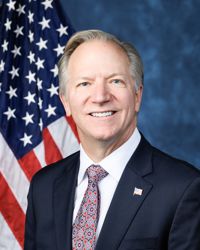H.R. 2571: Self-Insurance Protection Act
This bill, known as the Self-Insurance Protection Act, proposes changes to the Employee Retirement Income Security Act (ERISA) of 1974. Here’s a breakdown of what the bill aims to accomplish:
Purpose of the Bill
The main goal of the bill is to amend the definition of health insurance coverage to exclude a specific type of insurance called medical stop-loss insurance, which is purchased by employers who self-fund their health benefit plans. This exclusion specifically pertains to plans where employers bear the financial risk for health claims of their employees.
Current Landscape
Employers, both small and large, may provide health benefits to their employees through:
- Self-funded arrangements: The employer uses its own resources to cover health benefits.
- Fully-insured arrangements: The employer pays premiums to an insurance company that provides health coverage.
Employers that self-fund often buy stop-loss insurance as a way to manage financial risk. This type of insurance protects against high or unexpected health claims that exceed planned costs. However, it is essential to note that stop-loss insurance does not provide coverage to the health care providers directly, nor does it cover the plan itself.
Details of the Amendment
The bill proposes to change the existing definition of health insurance under ERISA by stating that:
Medical stop-loss insurance obtained by a self-insured group health plan will not be considered health insurance coverage.
This change allows employers who self-fund their health benefits to protect their financial resources without the stop-loss coverage being classified as traditional health insurance.
State vs. Federal Regulation
Currently, while employer-sponsored health plans are regulated at the federal level under ERISA, the stop-loss insurance that these employers buy is subject to state regulations. This bill seeks to clarify that:
Federal ERISA laws will take precedence over state laws that might restrict employers from obtaining stop-loss insurance to cover unexpected claims costs.
Essentially, this provision aims to ensure that employers can protect themselves from large health claim expenses without being hindered by varying state regulations.
Impact on Employers
By excluding stop-loss insurance from the definition of health insurance coverage, the bill is intended to:
- Provide more clarity for businesses using self-funding mechanisms for their employee health plans.
- Enable better financial management for employers who need to budget for potential high healthcare costs.
- Encourage more employers to adopt self-funded health plans, potentially increasing the options available for employees.
Relevant Companies
- CIGNA (CI) - As a major provider of health insurance and stop-loss insurance products, changes in the regulation of stop-loss insurance could affect its offerings and business model.
- UnitedHealth Group (UNH) - Another large player in the health insurance market that may need to adapt its products to maintain competitiveness in the self-insurance space.
- Aetna (AET) - The inclusion or exclusion of stop-loss policies can impact its business strategy concerning employers that choose self-funding options.
This is an AI-generated summary of the bill text. There may be mistakes.
Sponsors
2 bill sponsors
Actions
4 actions
| Date | Action |
|---|---|
| Jun. 25, 2025 | Committee Consideration and Mark-up Session Held |
| Jun. 25, 2025 | Ordered to be Reported (Amended) by the Yeas and Nays: 21 - 15. |
| Apr. 01, 2025 | Introduced in House |
| Apr. 01, 2025 | Referred to the House Committee on Education and Workforce. |
Corporate Lobbying
0 companies lobbying
None found.
* Note that there can be significant delays in lobbying disclosures, and our data may be incomplete.
Potentially Relevant Congressional Stock Trades
No relevant congressional stock trades found.

